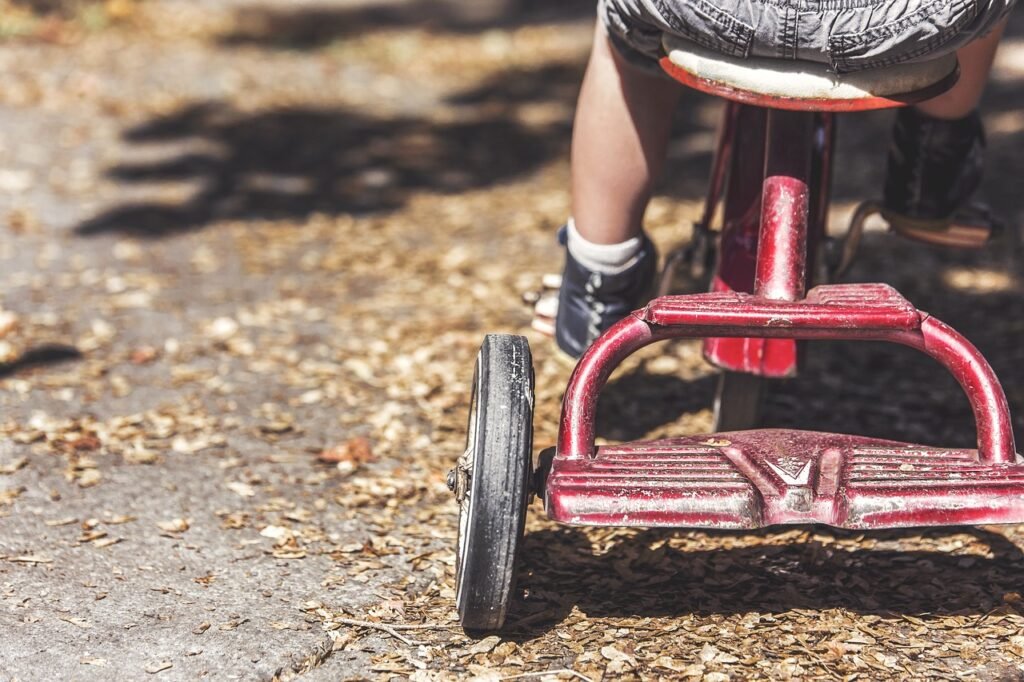
In this article, you’ll discover the fascinating world of the psychology of play with toy guns. As you delve into the complexities of children’s imaginative play, you’ll gain insights into the reasons behind their fascination with pretend weaponry. From understanding how play can help children develop essential skills to exploring the potential impact on their social and emotional development, this article aims to shed light on the deeper meanings behind a seemingly simple form of play. So grab a seat and get ready to explore the captivating realm of play with toy guns!

This image is property of pixabay.com.
The Role of Imagination
Imagination plays a vital role in a child’s development, allowing them to create and explore imaginary scenarios. By engaging in pretend play with toy guns, children can unleash their creativity and bring their imagination to life. Whether they are pretending to be superheroes saving the world or the hero in a Wild West shootout, these imaginary scenarios allow children to exercise their cognitive and emotional skills in a fun and interactive way.
Imaginary Scenarios
Through imaginative play with toy guns, children can become the heroes or villains of their own stories. They can create elaborate scenarios and storylines, allowing them to immerse themselves in a different world and take on various roles and characters. This type of play helps children develop their storytelling abilities, as they have to create narratives and interactions between characters. It also fosters their imagination and thinking skills as they must come up with creative solutions and outcomes for their imaginary scenarios.
Empowering Sense of Control
Engaging in imaginative play with toy guns provides children with a sense of control over their environment. By taking on different roles and characters, they can assert their autonomy and make decisions within the context of their play scenario. This sense of control allows children to develop their self-confidence and decision-making skills. They learn to take charge, make choices, and see the consequences of their actions, all within the safe boundaries of their pretend play.
Exploring Different Roles
Playing with toy guns also allows children to explore different roles and perspectives. They can pretend to be police officers, soldiers, or even cowboys, diving into different professions and experiences. By embodying these roles, children develop empathy and gain a deeper understanding of the world around them. It helps them see things from different perspectives, fostering their ability to appreciate diversity and understand others’ experiences.
Impact on Cognitive Development
Engaging in pretend play with toy guns contributes to the development of various cognitive skills in children.
Problem-Solving Skills
Imaginative play encourages children to think critically and come up with solutions to problems that arise during their play scenarios. Whether they need to rescue a captured ally or outsmart the enemy, children are constantly presented with challenges that require them to think on their feet. This type of problem-solving helps improve their cognitive flexibility and analytical thinking skills.
Spatial Reasoning
Playing with toy guns also helps children develop their spatial reasoning abilities. As they engage in pretend battles or create imaginary worlds, children must navigate their environment, understand distances, and strategize their movements. This enhances their spatial awareness and fosters their spatial reasoning skills.
Decision-Making Abilities
During imaginative play with toy guns, children are constantly faced with decisions that need to be made. From choosing which strategy to employ during a pretend battle to deciding which character they want to be, every choice contributes to the development of their decision-making abilities. This type of play allows children to practice making decisions, considering different options and their potential outcomes, which is a crucial skill they will continue to use in various aspects of their lives.
Emotional Expression and Regulation
Engaging in pretend play with toy guns also has a significant impact on children’s emotional expression and regulation.
Outlet for Aggression
Pretend play with toy guns can serve as a healthy outlet for children to express their natural aggression in a safe and controlled manner. By allowing them to act out scenarios where they can “fight” or “defeat” imaginary enemies, children can release any pent-up energy or frustration. This can help reduce aggressive tendencies and promote emotional well-being.
Managing Fear and Anxiety
Playing with toy guns can also help children manage their fears and anxieties in a controlled environment. By taking on the role of a brave hero, children can confront their fears and overcome them within the realm of their imagination. This can promote emotional resilience and build their confidence in real-life situations.
Understanding Emotions
Pretend play with toy guns provides children with an opportunity to explore and understand a wide range of emotions. It allows them to exercise empathy and perspective-taking as they portray different characters who may experience various emotions. Playing out scenarios involving conflict or cooperation helps children develop their emotional intelligence and enhances their ability to recognize and understand emotions in themselves and others.

This image is property of pixabay.com.
Role of Socialization
Engaging in pretend play with toy guns also plays a crucial role in the development of social skills in children.
Developing Social Skills
When children engage in pretend play with toy guns, they often do so with their peers or siblings. This type of play requires collaboration, communication, and cooperation, which are essential social skills. They learn to work together, negotiate roles and rules, and engage in shared decision-making. By playing together, children develop their ability to interact with others, respect different perspectives, and build relationships.
Negotiation and Conflict Resolution
Imaginative play with toy guns presents opportunities for children to practice negotiation and conflict resolution skills. When disagreements or conflicts arise during play, children must find ways to resolve them and continue with the game. This strengthens their communication skills, teaches them compromise, and helps them understand the value of peaceful resolutions.
Collaborative Play
Playing with toy guns encourages collaborative play, where children engage in shared imaginative scenarios. This type of play promotes teamwork and cooperation as children work towards common goals and objectives. By collaborating, children learn to exchange ideas, share responsibilities, and support each other, fostering a sense of camaraderie and enhancing their social skills.
Cultural Influences
Engaging in pretend play with toy guns can also be influenced by cultural factors, shaping children’s perceptions and behaviors.
Perception of Violence
Different cultures have varying perspectives on toy guns and their association with violence. In some cultures, toy guns may be seen as harmless playthings, while in others, they may be viewed as promoting aggression or inappropriate behavior. Understanding these cultural influences is important for parents and caregivers to navigate the role of toy guns in their child’s play and make informed decisions about their child’s exposure to them.
Gender Stereotypes
Toy guns are often associated with traditionally male-dominated roles and activities, such as police officers, soldiers, or cowboys. These gender stereotypes may impact how children perceive and engage with toy guns. Recognizing and challenging these stereotypes can help promote gender equality and encourage children to explore a wide range of roles and activities through their imaginative play.
Familiarizing with Real-World Scenarios
Playing with toy guns can familiarize children with real-world scenarios, particularly those involving law enforcement or military roles. While it is crucial to balance realistic play with age-appropriateness and safety concerns, exposure to these scenarios through imaginative play can help children understand and process real-life situations. As they engage in scenarios where they protect, defend, or rescue, children may develop a sense of empathy and appreciation for the work of law enforcement and military personnel.
Influence on Moral Development
Imaginative play with toy guns can also have an impact on children’s moral development.
Distinguishing Between Real and Pretend
Playing with toy guns provides an opportunity for children to distinguish between what is real and what is pretend. They develop an understanding of the boundaries between fantasy and reality, learning that their actions during play have different consequences than real-life actions. This distinction is an important aspect of moral development, as it helps children differentiate between acceptable behavior in a play context and appropriate behavior in real-life situations.
Empathy and Perspective-Taking
When children engage in pretend play with toy guns, they have the opportunity to take on different roles and perspectives. This fosters their empathetic abilities as they imagine and experience the emotions, motivations, and experiences of different characters. By stepping into someone else’s shoes, children learn to understand and consider the feelings and perspectives of others, contributing to the development of their moral compass.
Understanding Consequences and Fairness
During imaginative play with toy guns, children experience the consequences of their actions within the context of their play scenarios. This helps them understand the concept of cause and effect and fosters their understanding of fairness. They learn that their choices and actions can have positive or negative outcomes and begin to develop an appreciation for fairness and justice.

This image is property of pixabay.com.
Considerations for Parents
As parents, it is essential to strike a balance between allowing your child to engage in imaginative play with toy guns and addressing any concerns you may have.
Balancing Safety and Play
Safety should always be a priority when it comes to play with toy guns. Ensure that the toys are age-appropriate and do not resemble real firearms. Teach your child about the difference between play and real weapons, emphasizing the importance of never pointing a toy gun at people or animals. Establishing clear rules and boundaries around play can help ensure safety while still allowing for imaginative exploration.
Setting Appropriate Limits
While imaginative play with toy guns can be beneficial, it is essential to set appropriate limits. Pay attention to your child’s play and intervene if the play becomes aggressive or if they start imitating harmful behaviors. Encourage peaceful resolutions and empathy during play, emphasizing the importance of respecting others and their feelings.
Addressing Concerns About Aggression
If you have concerns about your child’s aggression during play with toy guns, take the time to talk to them about their feelings and emotions. Help them understand the difference between expressing their emotions and resorting to aggressive behavior. Encourage them to use their words to express frustration or anger instead of acting it out physically. Open communication and guidance can help channel their emotions in a more constructive and peaceful manner.
Effects on Child Behavior
The nature of play with toy guns can have varying effects on child behavior.
Aggressive Behavior
While some may worry that playing with toy guns promotes aggressive behavior, research suggests that this type of play is not the primary cause of aggression in children. It is essential to consider other factors such as media exposure, family dynamics, and individual temperament when examining aggression. By maintaining open communication and monitoring your child’s behavior, you can address any potential concerns and help them navigate their emotions and impulses.
Imitation and Role Modeling
Children often imitate behaviors they observe around them, including those learned through play. If you have concerns about what your child may be imitating during their play with toy guns, consider discussing the role models and influences they have. By providing positive examples and emphasizing pro-social behaviors, you can help shape your child’s understanding of appropriate behavior.
Exploring Assertiveness
Engaging in imaginative play with toy guns can allow children to explore their assertiveness. As they take on roles of brave heroes or powerful characters, they learn to assert themselves and express their needs and desires. This can be a positive aspect of their development, as it helps build their self-confidence and assertive communication skills.
Long-term Implications
The impact of play with toy guns can extend into adulthood, shaping behaviors and attitudes.
Impact on Adult Behavior
While the influence of play with toy guns on adult behavior varies, it can contribute to the development of various skills and interests. The problem-solving, decision-making, and teamwork abilities gained through imaginative play can carry over into adulthood and contribute to success in different areas of life, such as careers or personal relationships.
Desensitization to Violence
Exposure to play scenarios involving conflict or violence can potentially desensitize individuals to real-life violence. It is crucial to balance this type of play with discussions about real-world consequences and the importance of peaceful resolutions. By promoting empathy, critical thinking, and informed discussions surrounding violence, we can encourage a more compassionate and peaceful society.
Engagement in Pro-social Activities
Imaginative play with toy guns can inspire a child’s interest in pro-social activities such as community service or helping others. The valor and heroism often associated with the roles they play can instill a sense of responsibility and a desire to make a positive impact on the world around them. By supporting and nurturing these interests, parents can encourage their child’s participation in meaningful pro-social activities.
Diverse Perspectives
When exploring the role of play with toy guns, it is essential to consider a range of perspectives.
Research Findings
Research on the psychology of play with toy guns offers valuable insights into the potential benefits and effects of this type of play. By examining various studies, we can gain a deeper understanding of the cognitive, emotional, and social aspects of this play and make informed decisions about its role in our children’s lives.
Expert Opinions
Experts in child development, psychology, and play can provide valuable perspectives on play with toy guns. Their insights and recommendations can help parents navigate the complexities and potential implications of this type of play, allowing them to make informed decisions that align with their child’s well-being and development.
Parent Experiences
Every child and family is unique, and parents’ experiences can provide valuable insights into the impact and role of play with toy guns. Sharing experiences, concerns, and strategies with fellow parents can help foster a supportive and understanding community that promotes healthy play and development.
In conclusion, imaginative play with toy guns can have a significant impact on a child’s development. It enhances their cognitive skills, emotional expression, socialization, and moral understanding. By understanding the psychological aspects of play with toy guns and considering diverse perspectives, parents can make informed decisions about their child’s play and foster their holistic development.